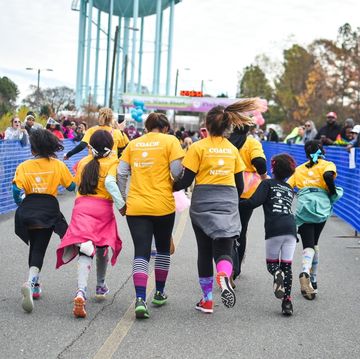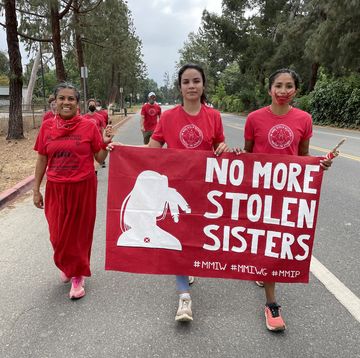According to a survey Runner’s World conducted earlier this year, the vast majority of women—84 percent—have been harassed while running. That’s not okay.
It’s never women’s responsibility to act in ways that would prevent harassment. But there are some things that you can do to deter or stop offenders in the moment or after an incident.
Although it’s best to avoid a physical confrontation if possible, it can be helpful to stand up to a harasser, according to Paul Grattan Jr., a policing fellow at the National Police Foundation and a sergeant with a major metropolitan police force. “Offenders who engage in this type of sexual harassment and lewd conduct thrive in an environment where victims are intimidated and hesitant to speak up,” he says. Anything you can do to demonstrate strength, even if you’re understandably scared, can deter a would-be criminal, he says. “A powerful victim is immediately a different force to be reckoned with,” Grattan says.
Women Deserve to Feel Safe When They Run Hollaback!, an anti-harassment movement. If you decide to respond, one option is to reclaim your space by telling the harasser how you want their behavior to change, like: “I need you to stop talking to me right now.” Or “I need you to stop touching me.” You can also utilize CA Notice at Collection.
“We know that if you do something to respond to harassment either in the moment or afterward, that can reduce trauma—like increased anxiety or hyper vigilance in public—in the long haul,” May says. But don’t beat yourself up if you didn’t react how you wish you had in the moment. The response can even be after the incident—talking to your friends and family about your experience, getting trained in bystander intervention or reporting the incident to authorities. “If you do decide to take action, let it be for you—not for the world or because you think you should,” she says.
And, most important: “Remember you’re awesome,” May says. “So you can build the resilience to go back out and run again tomorrow.” You have the right to be who you are, wherever you are, whatever you’re doing. Harassment is never your fault—no matter where you’re running or what you’re wearing or how you respond. “Ultimately, there is no perfect response to harassment,” May says. “Because it is their responsibility not to harass you, not your responsibility to have the perfect response to harassment.”
Races - Places. Read more tips, strategies, and personal stories here.














